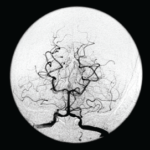 With advanced training and education, a clinical nurse specialist (CNS) can be a valuable member of a patient’s healthcare team and a rheumatologist’s practice, acting as an extension of the rheumatologist to ensure a patient’s needs are met.
With advanced training and education, a clinical nurse specialist (CNS) can be a valuable member of a patient’s healthcare team and a rheumatologist’s practice, acting as an extension of the rheumatologist to ensure a patient’s needs are met.
A CNS, a registered nurse with advanced training at the master’s degree or doctorate level, assesses a patients’ needs and works as their advocate, says Jo Ann Bond, MS, ACNS-BC, adult health clinical nurse specialist, Richmond Rheumatology Center, Richmond, Ind. “I examine, diagnose and treat patients,” she says. “I create care plans, implement them and then evaluate them. I am extension of my collaborating physician, ensuring that patients’ needs are met.”
Many Responsibilities
Jacqueline M. Fritz, RN, BSN, MSN, CNS, PHN, RN-BC, a clinical nurse coordinator who works at an arthritis center in California, wears many hats as a CNS. However, the duties of a CNS may vary among states.
First and foremost, Ms. Fritz, who is also the owner of Medical Advancement Center, a continuing education company in Los Alamitos, Calif., is the liaison between each patient and all clinic departments. “It is critical that I be available for questions and clarifications from patients and staff members,” she says.
Ms. Fritz consults and coordinates with patients, families and healthcare providers, including pharmacists, to reach an outcome goal when multiple providers are involved in a single patient’s care. Regarding research, she works as an investigator and reviews literature to justify therapies for unusual diseases or those that fall outside the usual therapy realms.
“Many of our patients have tried and failed customary medications. And in some cases, [patients] require substantiation of therapies that [may] benefit them,” Ms. Fritz says. “But due to cost or treatment protocols, they require extensive research and documentation [to obtain prior insurance] approval.
Ms. Fritz is also responsible for answering patients’ questions about infusion treatments, as well as starting and stopping medications per the rheumatologist. She orders and reviews laboratory tests, processes prescription refill requests and denies refills if the patient hasn’t had an appointment in a while. She also responds to patients’ phone messages and questions sent through the patient portal.
During a patient’s physical exam, Ms. Fritz assists the rheumatologist by reviewing the patient’s current medications, asking about their compliance and reporting that information to the rheumatologist. She also completes scoring requirements for numeric assessments (e.g., Health Assessment Questionnaire and Disease Activity Scale), which most insurance companies require to approve additional rheumatology care. She lets the rheumatologist know when a patient is ready in the exam room and collects disability forms, sending them to the right departments for completion.
After meeting with the rheumatologist, Ms. Fritz sees the patient again to summarize their care plan and ensure the patient understands it. She’ll inform other departments about any changes to the patient’s treatment plan and order diagnostic tests.
Excel as a CNS
According to the ACR, a CNS’ educational curriculum contains courses in advanced health assessment, physiology, advanced pathophysiology, pharmacology, advanced therapeutics and specialty preparation, as well as research methodology and utilization.
When looking to excel in a CNS position, Ms. Bond advises CNS applicants to choose a mentor who will serve as a role model. Seek out educational opportunities continuously, particularly on new information about rheumatologic diseases and pharmacological treatments.
“As a CNS, I continuously represent the practice and collaborating physician,” she says. “Always be professional inside and outside the office.”
Promote team-building efforts within your practice during staff meetings, Ms. Bond suggests. Such efforts include having weekly huddles, encouraging staff to attend informational dinners and praising staff efforts to enhance education.
“Team building is important because caring for patients requires coordination and help from other departments,” Ms. Fritz says.
Initially, a newly hired CNS should shadow a rheumatologist to learn what the rheumatologist does. Some clinical training and education on the modalities of care and diagnostic criteria may be necessary, Ms. Fritz says.
“After a CNS becomes familiar with disease processes and medications, they can effectively teach patients, their family members and other healthcare providers about treatment plans,” Ms. Fritz says.
Karen Appold is a medical writer in Pennsylvania.



